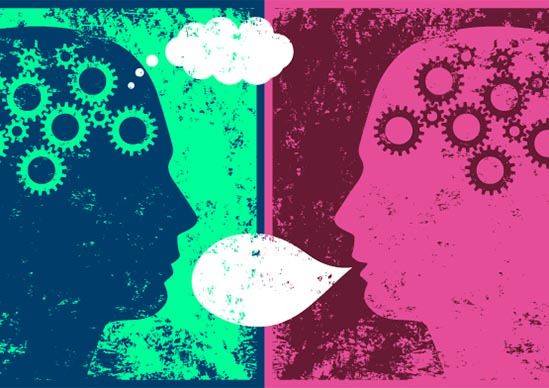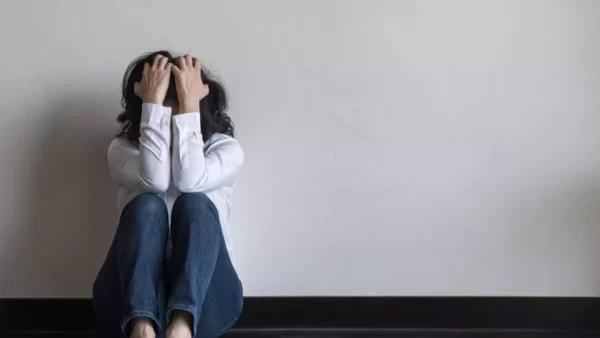Wake-up times: 2:07 AM, 4:23 AM (me, cats)
I’m tired and I’ve got a cold.
So much for my miracle morning. Plus, I was woken up by a cat who absolutely wanted THOSE cuddles RIGHT NOW and it was cute so I’m not even mad.
Anyway, let’s talk about something I wanted to discuss but forgot about, but I stumbled upon it again this morning, in short.
🐳🐳🐳
🌼 If I say « The government’s autism, » you immediately think of people who can’t communicate at all and understand the lives of their fellow citizens.
🌼 If I say « A schizophrenic situation, » you think of a situation with two sides that can’t find a way out.
🌼 If I say « The government’s bipolarity, » you think of the rapid, unpredictable changes of opinion that occur.
These three words are very telling, which is why they are regularly used in the media. We know what they refer to: an imaginary clinical picture that allows the world to be explained simply.
It also serves to pathologize human errors instead of holding their authors accountable, which is why guys who kill are « lunatics » or « seriously ill » if we believe the comments on any publication about femicide.
So, first of all:
🪐 Plenty of people with ASD know how to communicate, at least much more effectively than 27 Jean-Michel Blanquer’s put together.
🪐 People with schizophrenia don’t all have two or more personalities. It’s actually quite rare. My sister was affected. Well, she didn’t handle the same schizophrenia as the government, let’s say 😅
🪐 People with bipolar disorder don’t have an on/off switch; it’s quite rare to go from down to up in a snap (I wish!). The descent is easier but it’s not often immediate.
There’s a world of difference between the reality of these conditions and what we’re sold. Using expressions like « in the midst of a hallucinatory delirium » or « crazy » fundamentally shows a lack of understanding of hallucinations or madness.
The problem is that the « oh, it’s no big deal » attitude spreads and reinforces these false ideas about psychiatric illnesses. And who gets hit in the face with the broken plates? Us.

Bipolar France: the public sector is collapsing, the private sector is reinventing itself and asserting itself
While the government is trying to occupy the political space in the next 100 days, the private sector is reinventing itself with capitalist entrepreneurs who are determined to play a role in the new global order.
One day, you’ll come to my place and only realize afterward that you spent the whole evening talking to several autistic people and that it was a bipolar woman who handed you your beer. Yes, autistic people know how to talk 😳
The day you meet a schizophrenic person while knowing their situation, maybe you’ll have these ideas in mind, maybe you’ll be SCARED 👻 before realizing that actually no one chopped you into pieces and you even had a good time.
I can understand the anxiety about bipolarity and schizophrenia: these are two conditions that have led to absolutely horrifying acts, and it’s part of my own anxieties. Fortunately (for you), these acts are most often self-inflicted.
💀 The nurses in Pau, for example: a horrifying, atrocious crime with no logic. The perpetrator was a former patient with schizophrenia. What you don’t know is that his mother fought for years to get him treated and cared for in psychiatry, with no success: he was sent back as soon as the medication calmed him down. No real care or follow-up, Romain Dupuy ended up in an apartment and stopped taking his treatment. Like it’s not a classic thing to stop medication…🙄
My sister hasn’t killed anyone (she’s tried, several times, but it hasn’t worked so far), but she’s on the same pattern of abandoning therapy in favor of cannabis as Romain Dupuy. If you’ve been following me for a long time, you know I smoke. I’m not judging anything; I’d be in no position to, because I’m going to say that it’s not necessarily a good idea to smoke or drink when you have « severe » mental illnesses. I’m affected, I smoke, it’s going well. So, mind your own business, okay.
There are also incidents with bipolar people, « incidents » with the same level of violence as schizophrenic perpetrators. I don’t want to describe it, but it can go very, very far in a psychotic crisis 😢

« The bipolar bromance of Legault and Trudeau »
What’s worrying is this facade of unpredictability.
Because there’s one thing we don’t repeat enough: we know our pathologies, and many of us know how to manage them more or less correctly. If we sink, it’s rarely a surprise. I can’t speak for all psychiatric patients, but generally, we « feel » that something is happening; it’s not just a snap of the fingers and poof.
🌇 Elisa Lam, the woman who ended up in the water tank of the Cecil Hotel in Los Angeles (the creepy video of the woman entering and exiting the elevator, you know?), had been in crisis for several days at the time of her act. Her lithium levels were very low (she was only taking half of her treatment). The day before her disappearance, her roommates asked her to leave because she was acting strangely. She found herself alone, excluded, in the midst of a psychotic crisis, and she unraveled.
No one thought, « Hey, there’s a big problem here, she’s annoying, okay, but this is clearly not a personality issue, there’s something else going on, » because no one knows how to recognize a psychiatric disorder, and no one knows how to react to a person in crisis.
According to my social circle and my experience, which is to say not much, psychiatric patients are MORE aware of their condition than you think. We talk about treatments, coping mechanisms (compensating/dealing), we support each other during crises, and we give each other advice. Not everyone, which is a shame, not all the time or everywhere, which is also a shame. When people open up, it feels so good… and it teaches us things about ourselves and others.
In short, the vast majority of people with psychiatric disorders « mask » their pathology with different strategies like humor or overcompensation. It’s effective but extremely draining in terms of vital energy.
Every day, we navigate among people who are depressed, anxious, bipolar, autistic, ADHD, or schizophrenic without realizing it. We are far more numerous than you think.

So, as someone affected by this, it pisses me off when my condition is used to poorly define a situation.
Bipolarity isn’t a coin toss. It’s rarely as clear-cut as that. Fortunately, because it gives us time to feel that we’re changing direction. Actually, it’s like saying a boat can’t turn around in 3 seconds. It takes time.
We say « an autistic government » to avoid saying « people who make decisions without you and don’t care about you. » It’s so far from the autism I see every day that it would almost be funny if it weren’t so harmful. I’d actually prefer real autistic people in government 🤔
All of this reinforces a completely false idea of these conditions and the individuals who have them. It makes us look bad. Dangerous. Ready to pull out a cleverly hidden butcher knife from our big pockets full of mysterious things, when actually, no.
☢ By reinforcing stereotypes through the misuse of psychiatric terms to explain things, we seriously harm people with these conditions.
Have you ever seen fear in people’s eyes after saying just one word? That’s the power it has. You say « bipolarity, » and I swear it works. « I’m bipolar. » I’ve seen the instinctive recoil, and I’ve felt it. I’m bipolar, not blind or intellectually inept. Even in some close friends, I’ve seen this reaction, and it was excruciatingly painful. I hadn’t changed; I was already sick before, but the diagnosis terrifies people, and honestly, I’ve sometimes had crises in reaction to their reactions.
☠️ Seeing fear in the eyes of people you love is unbearable. It creates distance between you and « normal » people. I’m not putting « normal » in quotes because what’s constantly thrown in our faces is our own abnormality, so damn it, you can tolerate one word without quotes.

Continuing to use these expressions perpetuates the toxic pattern. We need to stop doing this, please.
🧩 I’d really like us to talk about psychiatric conditions or neuroatypicalities in a way that helps the rest of the world understand them, based on facts rather than the mental image we have of them. For example, I’d like us to talk about them in school. In every class, there are bound to be students suffering from one or more conditions.
Can you imagine being a preteen and realizing you perceive the world differently without being able to explain it or ask for help? At times… I thought I was going crazy, haha. The first anxiety attacks are terrifying. Why don’t we explain to children that, in any case, an anxiety attack can’t suffocate you because the body has survival reflexes? Do you know how many anxiety attacks I had before learning this? Me neither, it was a rhetorical question.
Do we learn in school how to handle someone in the middle of a crisis? How to protect yourself, assess the situation and its severity, keep the person safe, and decide what to do next? Oh right, it’s like harm reduction for substances and sex education—it’s optional because oh boy, it’s a sensitive subject for parents.
🧩 It would be great if we talked about all this for real. Being seen as something other than a crazy, unstable, and dangerous person would be nice.
And this, among other things, comes down to language use. We use terms to poorly define situations, which poorly defines the situations and also harms those affected.

🥺 Instant confession: I still use expressions like « de ouf » (« crazy ») and sometimes « halluciner. » I use the first one much more because, in my opinion, it’s like saying « putain ! » — these are terms used as interjections. I don’t forbid myself from using these terms; I don’t use them often, but I do use them.
The problem is that the lexical field of psychiatry is evocative, and clinical pictures can make « good » descriptions of surprising things. Mental illness is a whole set of mysterious mysteries that fall outside the social framework. But that’s no reason.
We have plenty of other words; it’s not exactly a huge effort (see?), let’s stop giving in to convenience.
🐾 You see, I write. Yes, you know. I’ve been writing « seriously » since I was 30. When I got into feminism, I discovered all this, AND IT PISSSED ME OFF.
At first, I regretted using these expressions because it cut me off from such a rich lexicon, but then I got pissed off for regretting them, so I forgot most of them. But at the beginning, I was totally resistant. Who do they think they are, telling me what to do?
Then, I realized the implications went beyond just « they’re censoring us »: it was about respecting people. I made the connection quickly because I’ve worked a bit with people with psychiatric disabilities, and I’m not afraid of people with severe pathologies at all. (Respect myself? Are you kidding?)
💌 Working with deaf children taught me about the existence of the Deaf community. It taught me about institutional and sometimes familial violence. I NEVER again said « deaf-mute, » and I always corrected people who used these expressions because I’m annoying. This expression has a pretty ridiculous basis: people think deaf people can’t speak. That’s false.
By also spending time with people with various pathologies and/or users of serious substances, I was able to see the diversity of symptoms, learn about comorbidities, and cry when one of them went toward the Great Void, always, always, always by their own hand.
That’s the greatest risk, actually, much greater than hiding a blade in their boots. Self-destruction. I don’t want to look up the mortality rate, but all my friends who committed suicide had psychiatric pathologies.
✴ I looked it up, of course. Between 10% and 15% of people with these conditions take their own lives.

Knowledge is the beginning of acceptance and mutual respect. We NEED to teach people what mental illness really is. Psychiatry is nothing like what you think.
▶ All of this also involves stopping the use of terms like « crazy, » « schizophrenic, » or « autistic. » If only out of respect for our dead.
I’m mainly targeting newspaper headlines here. The ones that psychiatrize the perpetrators of violence. These perpetrators are often completely neurotypical people. Cis hetero men who beat their partners are not crazy. They kill. Saying they’re crazy makes it seem like the problem comes only from them and not from the culture of violence we’re steeped in.
▶ If an individual is crazy and kills, it’s an isolated case, tough luck. But what if they’re not crazy? That implies they committed the act with full control of their faculties and that something else was at play. Something like misogyny, for example.
Incel killers are not crazy: they hate women and murder them to avenge themselves against a system they believe is so unfair to them. The system in question? Toxic masculinity, which makes people believe in alpha male nonsense. What a logic.
Instead of naming things precisely, we pathologize. It’s easier to blame insanity than to ask painful questions about our operating system in the strictest sense.
▶ So we use shortcuts to avoid facing the most serious problem of all: the world is sick, and societies are all broken. Pathologizing is very reassuring. It’s not us, it’s not the system, it’s that individual who snapped.

Does this remind you of when you’re made to bear the entire weight of ecology by being asked to pee in the shower? Or when you’re told to « consume responsibly, » but it’s financially out of reach?
Individualizing solutions is a very effective strategy for failure. Instead of blaming large industrial groups, you’re looked down upon if you search for plastic straws. Who cares about COP26, we need to sort even more.
Yet, only 25% of our waste is actually recycled, 2-5% is sent to other countries like China, Malaysia, or the Philippines, 67.5% is incinerated, and 7.5% is sent to landfills. « Due to lack of infrastructure » or for other logistical issues. So instead of investing money, the pressure is put on « small everyday gestures, » and we’re the ones penalized by removing consumer products and replacing them with more expensive, eco-friendly alternatives. Zero waste, maximum profit.
It’s actually a pretty similar mechanism. Instead of saying, « Hey, we have femicides, we need to do something, » we psychiatrize. Instead of saying, « Hey, I’m a journalist, I know lots of words, » we psychiatrize.

After that, do what you want. I’m writing all this so you know. If you have literary habits you want to keep, go ahead. I’m not here to judge your choices or punish you; that’s not my job.
It’s up to you to ask yourself the question.
🤔 Retarded? Idiotic? Maniacal? Twisted? Crazy? Demented? Nuts? Neurotic? Lunatic? Brainless? Hallucinating?
The thesaurus is there to help. I counted 176 synonyms for « crazy, » many of which work just fine, like « prodigious » or « whimsical » (no, that was just to say « whimsical »)(whimsical!). So it’s technically possible not to use psychophobic expressions! Yes, it is!
With that, I’m going to count my little pink pills to fill my pill organizer, so I don’t end up trying to walk on the Marne River without my hands ❤️

